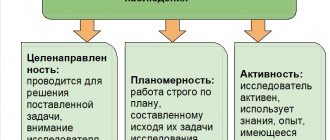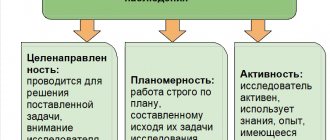Most people don't seem to take punctuality seriously. Being five, ten or even thirty minutes late is considered quite normal. People console themselves with studies that prove that unpunctual people are more creative. This allows them to not feel guilty about keeping the other person waiting and wasting their time.
In fact, unpunctuality reveals all the shortcomings of a person.
unpunctual
Together or separately? Spelling dictionary-reference book. - M.: Russian language. B. Z. Bukchina, L. P. Kakalutskaya. 1998.
See what “unpunctual” is in other dictionaries:
unpunctual - unpedantic, careless, non-executive Dictionary of Russian synonyms. unpunctual adj., number of synonyms: 3 • careless (14) • ... Dictionary of synonyms
non-punctual - *non-punctual... Together. Apart. Hyphenated.
careless - stupid, unlucky, unsystematic, unpunctual, chaotic, disorderly Dictionary of Russian synonyms. disorderly see disorderly Dictionary of synonyms of the Russian language. Practical guide. M.: Russian language... Dictionary of synonyms
non-executive - faulty, unpunctual, inaccurate Dictionary of Russian synonyms. non-executive adj., number of synonyms: 4 • not distinguished by efficiency... Dictionary of synonyms
unpedantic - unpunctual Dictionary of Russian synonyms. unpedantic adj., number of synonyms: 1 • unpunctual (3) ASIS Synonym Dictionary ... Synonym Dictionary
accurate - True, faithful, reliable, undoubted, unmistakable, real, genuine, neat, attentive, conscientious, correct, efficient, strict, thorough, punctual, correct, pedantic, scrupulous, rigorous, ... ... Dictionary of synonyms
accurate - 1. Syn: correct, true, complete, complete, strict, error-free Ant: inaccurate, false, incorrect, erroneous 2. Syn: punctual, neat Ant: inaccurate, non-punctual, sloppy 3. Syn: definite, clear, precise ... Thesaurus of Russian business vocabulary
flashlight - 1. [15/0] Black eye. Who installed this lantern for you? Youth slang 2. [0/4] A person who is often late for meetings, i.e. unpunctual We agreed to meet, but his lantern is missing! Youth slang ... Dictionary of modern vocabulary, jargon and slang
Source of the article: https://dic.academic.ru/dic.nsf/rus_orthography/52623/%D0%BD%D0%B5%D0%BF%D1%83%D0%BD%D0%BA%D1%82% D1%83%D0%B0%D0%BB%D1%8C%D0%BD%D1%8B%D0%B9
Late guest
Imagine this situation: you are planning a special event. You sent out invitations to guests for a dinner party, visited all the stores in search of delicacies, stood at the stove for half a day, and set a luxurious table. Finally, all preparations are completed and you are looking forward to the arrival of your guests. Everyone arrives at the appointed time, except for one person. Of course, this is very upsetting for you as the owner. You can’t find a place for yourself and are wondering what to do with the rest of the guests.
Together or separately: five words that are spelled incorrectly
Almost all of us are constantly
they write certain words incorrectly because they do not know or have forgotten the rules that indicate how to write a word, and there is neither the desire nor the time to open the textbook.
Perhaps you need to write together, or separately?
It is not known which option to choose, but there is only one correct one!
You need to know how to write correctly so as not to look like an illiterate person in the 21st century.
There are five words, and they are spelled incorrectly by those who have never been able to improve their literacy.
By the way, do you yourself know how to write them correctly? Let's check.
Rule one:
Unmarried, single, or not married?
It is very difficult to immediately understand how to spell this word correctly, and there are also a lot of mistakes made in it.
You need to write it correctly - not married!
It is not written separately, remember!
Rule two:
In connection or in connection.
It doesn’t matter what part of speech it may be, it should always be written
exclusively separately
.
Rule three:
To avoid or to avoid.
Remember that the end of the preposition must be “e”, and spelled correctly -
to avoid
.
Rule four:
On time or on time?
In this case we are talking about an adverb, the emphasis is on the first syllable.
It is written smoothly
. And if it is a noun with a preposition, then we divide it.
1)
During the presentation, various topics were discussed.
2)
Correct - on time. She arrived at the meeting on time.
Rule five:
Not for long, not for a long time or not for a long time?
Many people want to write the adverb separately, but this should not be done. You can change it to a synonym - for a short time. But there may be exceptions here:
– there is a contrast with the conjunction “a”
– the words “not at all”, “not at all” and others.
When it is impossible to replace not for a long time with a synonym, you should write: not for a long time.
Be literate and do not make ridiculous mistakes in writing :)
Did you like the article?
Give it a thumbs up











